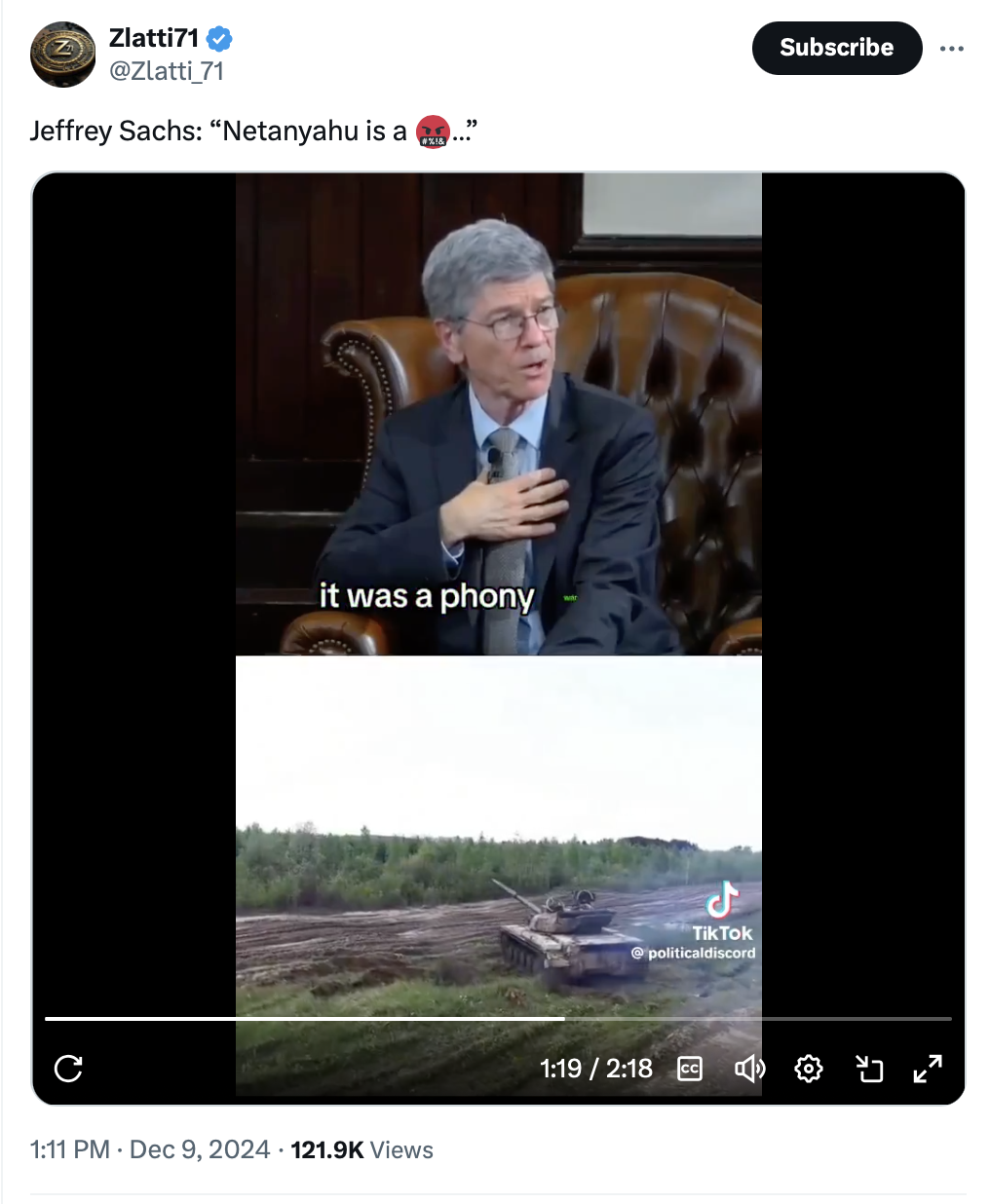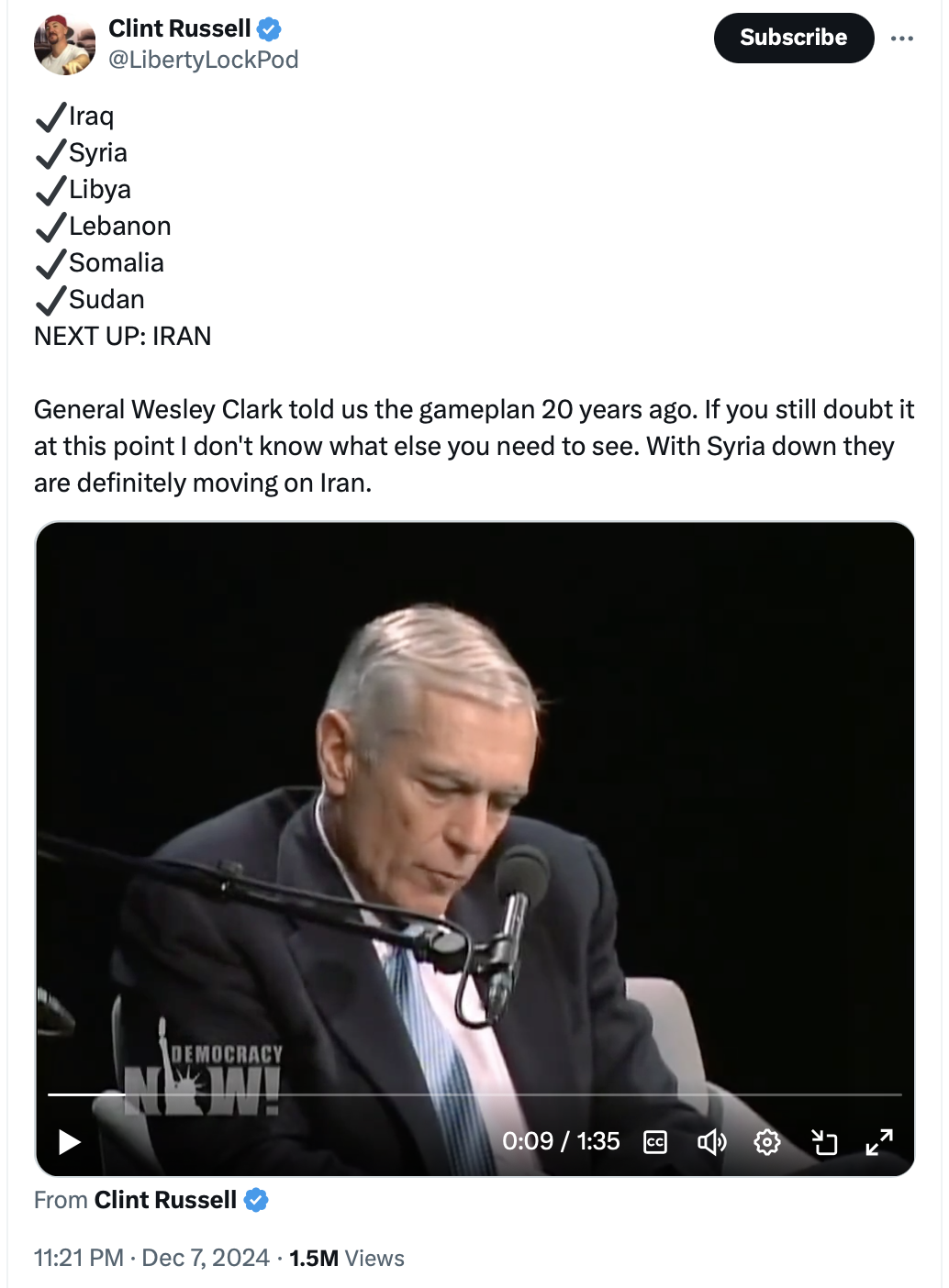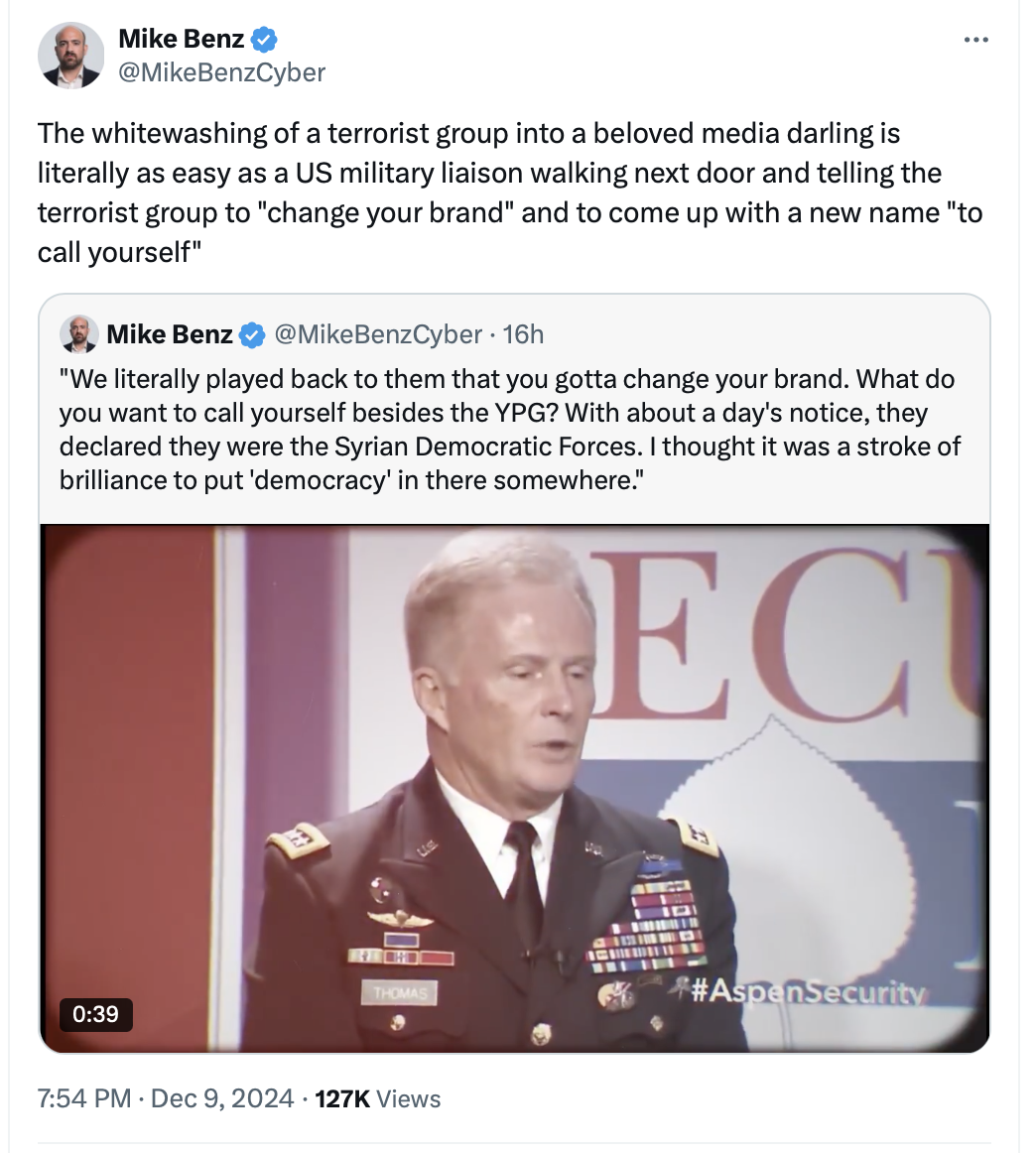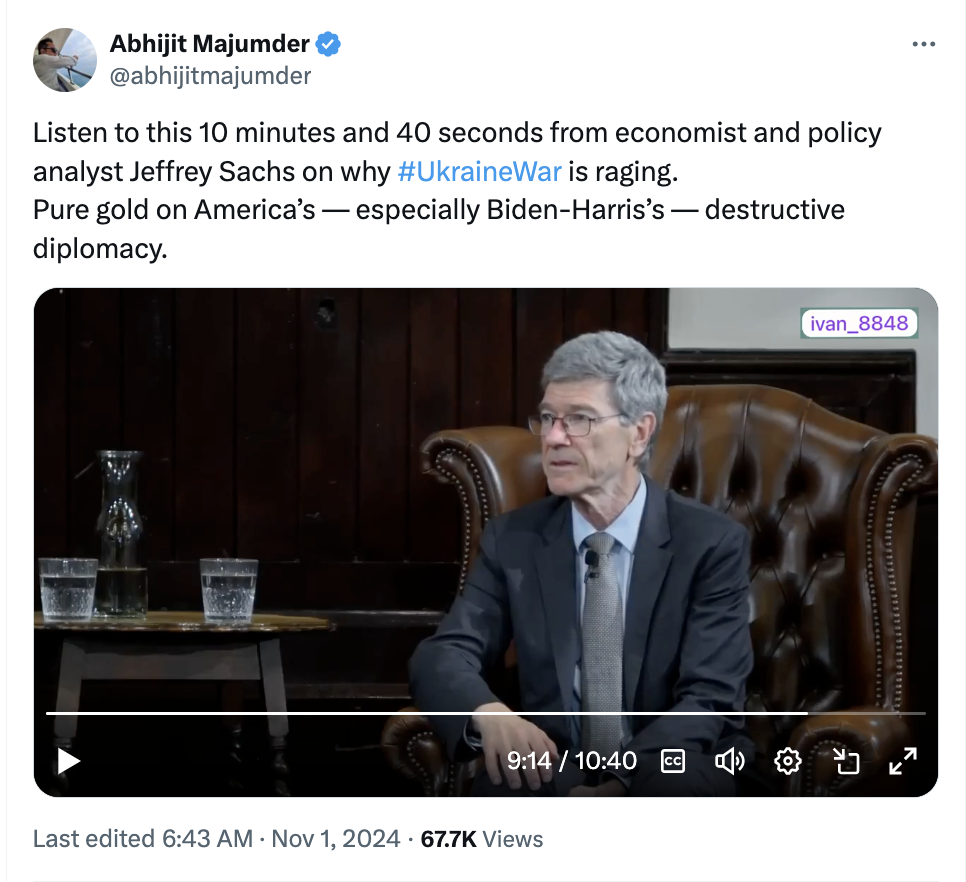Fascinating discussion about Ukraine, censorship and the insanity of the neocons (of the U.S. and western Europe). Here's an excerpt from a much longer conversation titled "Gambling with Nukes" by Matt Taibbi and Walter Kirn.
Matt Taibbi 0:16
There's a gamble implicit in it. You are firing missiles at a nuclear power and you are gambling that they are not going to fire them back, right? And there was, there were actually quotes from American officials talking about how, you know the real irresponsible people were the Russians. They were the ones you know, who were being irresponsible. Let's see what was the quote? The EU foreign policy chief Joseph Burrell said it's not the first time that Putin plays the nuclear gamble, okay? And this was before the launch of the British missiles, and after the launch of the of the ATACMS missiles. And then, and then this guy, [British Prime Minister, [Keir] Starmer, who comes out, and he looks like a cross of Max Headroom and Noel Coward. I mean, like, I can't even that the whole presentation is so disturbing. This like kind of blinking creature who speaks in that bizarre accent, just repeating catch phrases over and over again while he talks about firing missiles at Russia. It just seems crazy, right? And then that is succeeded by new news that came out that, apparently, the French are going to be next, and they're going to, they're going to be sending something called SCALP missiles into Russia. And, you know, then we get the ICBM fired back.
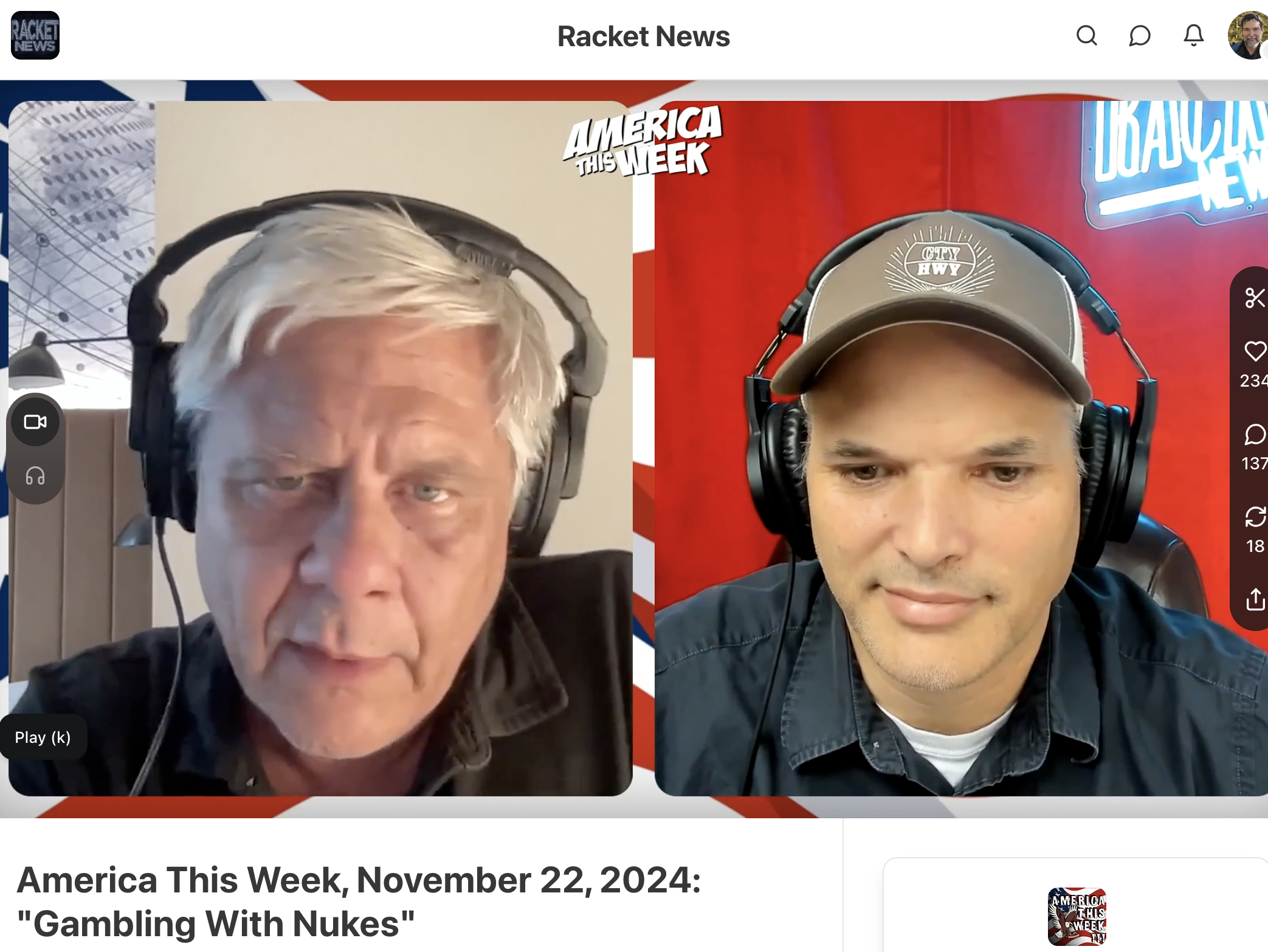 Walter Kirn 1:59
Well, they're, they're all they're all making themselves targets, aren't they? I mean, they're lining up. Should there be any doubt about the legitimacy? Who cares about legitimacy? Who cares about all the rules anymore these? Who cares about the norms? Dude, they just broke the biggest norm in history, which was to send our missiles into a nuclear state to land and explode. That's the biggest norm in American or world history, since those kind of things were invented, frankly, so the rules based international order--that's out the window. Norms are out the window, not shooting missiles into the home territory of the greatest nuclear power next to the United States is out the window. All of this being led by a lame duck American president who is all week in South America, while his vice president, who just ran for president, is vacationing in Hawaii. Well, Aloha. The whole mask is off.
Walter Kirn 1:59
Well, they're, they're all they're all making themselves targets, aren't they? I mean, they're lining up. Should there be any doubt about the legitimacy? Who cares about legitimacy? Who cares about all the rules anymore these? Who cares about the norms? Dude, they just broke the biggest norm in history, which was to send our missiles into a nuclear state to land and explode. That's the biggest norm in American or world history, since those kind of things were invented, frankly, so the rules based international order--that's out the window. Norms are out the window, not shooting missiles into the home territory of the greatest nuclear power next to the United States is out the window. All of this being led by a lame duck American president who is all week in South America, while his vice president, who just ran for president, is vacationing in Hawaii. Well, Aloha. The whole mask is off.
The thing that scares me is how these people ever expect that they and their party will be taken seriously for five seconds should they ever try to float a peace message or a humanitarian message. Again, the party of social justice, and in England, the left wing party, the Labor Party, to which Starmer belongs, are at a moment when we have actually, in the United States, the center, the crown, of this power structure, voted out our executive It is beyond insane, and it will not end well. Matt, just as I was upset on Monday, I can tell you that next week we will be even more upset. Things are going to happen, and things are already happening every day, when this missile went off this morning. Every power in the world that has modern warning systems had an alarm go off right for the first moments after its launch. The United States had to assume that it was under nuclear attack.
[MORE . . .]


